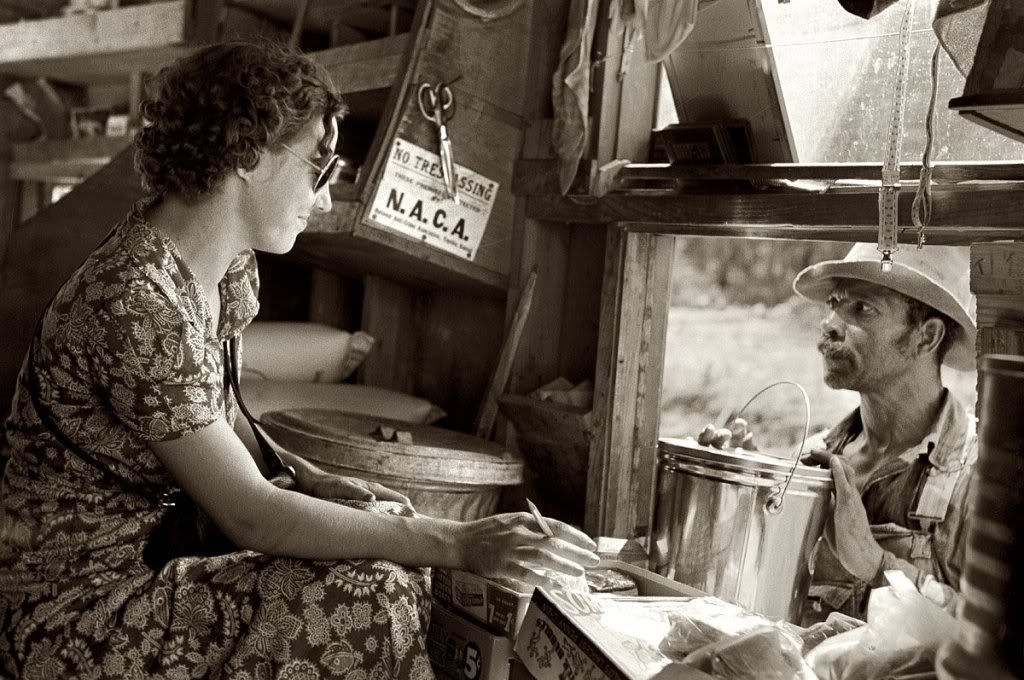This is the first in a series, as I read through The Complete Stories of Flannery O'Connor and blog about it.
Read the story here: http://www.nbu.bg/webs/amb/american/5/oconnor/geranium.htm
"The Geranium" is the first story ever published by Flannery O'Connor, written as part of her master's thesis. O'Connor would go on to rewrite and republish this story four times, finally as part of her most famous collection Everything that Rises Must Converge.
In "The Geranium," an elderly man makes the decision to leave his humble boarding house in Georgia to live with his daughter in New York City. He is lonely and he is obsessed with second-guessing his decisions. He misses his social standing in the South and his "Negro" friend; in his mind, such friendships can only exist under certain social conditions: that black men should know and accept they are not equal to white. In the bohemian equality of NYC, this problem obsesses him and obsesses him until it practically radiates from him, even when unintended, leading to the violent conclusion of the story. A conclusion one might not expect given that the story begins with an old man staring at an empty spot on a windowsill, waiting for a geranium to be put out for sunshine.
I recently read a news-piece about the seemingly sudden backlash against the advancement of civil rights for homosexuals; the essential argument is that normalization was on the increase until actual legislation was passed. Once gay marriage became a reality in some states, new fears crept into a conservative (and usually religious) population that was slowly becoming more tolerant, and then there was a sudden backlash against everything from DADT to anti-bullying legislation.
This story illustrates that conflict perfectly. The old man happily (though patronizingly) co-exists with black men in his homestead; there's an understanding between them, he feels, and as long as that understanding exists, then they may interact, even socially. But when he moves North, and that understanding is removed, then he breaks. Long suppressed prejudices become real and apparent to him, and he even attacks his daughter for what he sees as a violation of principle - how could she live in a place where a Negro is allowed to live next door to her?
Those of you who have read it, I look forward to discussing it below.



thanks so much for this link-I love Flannery O'Connor-I will post on this story soon
ReplyDeleteThanks for stopping by! I look forward to it.
ReplyDeleteThe Geranium
ReplyDeleterepresents ties to Dudley’s past in Jim Crow Georgia,
he’s up North now and the nigger with shiny shoes is kind of an unexpected
savior for the old man. While it’s clear
by Dudly’s view that the apartment is kind of a hell for him, this doesn’t
equate to God’s view. It’s not unexpected that something that looks like a purgatory
could be kind of a way of salvation. The
sins of Dudley by our modern standard are racial in
nature, but this sensibility doesn’t equate to what’s really going on in the world
of Flannery O’Connor. The only character
old Dudly has any love for is Rapie, the negro servant. It is this relationship and the sentiment
that is puzzling for the reader. He
loves Rapie, but at the same time, Rapie is beneath him. In Dudley’s mind, a
righteous world is unequal; the black man serves the white. The Geranium crashing to the ground
represents this world being destroyed.
In the new world the black man can be sophisticated, intelligent, and
gracious. Early in the story, Dudley
says, “She could have saved herself” referencing his daughter. The implication is that she “saved” him
instead; this having the dual meaning of salvation and a daughter dutifully
taking care of her father. It could said that the story is a statement on the
sinfulness relating to the subjugation of the black man in the deep south, and
how a loving god forgives those who are contrite. While not explicitly revealing contrition,
the characterization is subtle, as the neighbor reports, “What you cryin’ for?
…I ain’t never seen a man cry like that.”
In O’Connor’s world repentance from sin is tantamount to just escaping hell
and is spiritually painful, not pleasant. And certainly, the old man doesn’t
enthusiastically accept this new world, perhaps he’s more afraid of the hell he
is aware his former world exists in, or perhaps its something else. At the end
of the story the neighbor says, “Why don’t you (get the germanium) pop?” And so he descends down through the darkness,
tempted to bring back the geranium, but it was only through god’s grace (the
black man) that he doesn’t. God sees him as a child, holding an imagined gun,
weak, and the black man rescues him from the depths. The neighbor sees him and says, “I ain’t seen
you pickin it up.” To paraphrase the
neighbor’s last message to Dudley: I recognize you as one of god’s children,
don’t question the nature of God’s methods.
He only tells people once. If you renege on his grace you’ll end up like
the plant in the depths below.